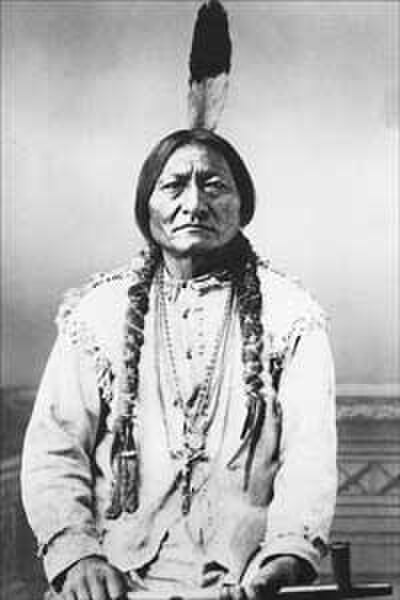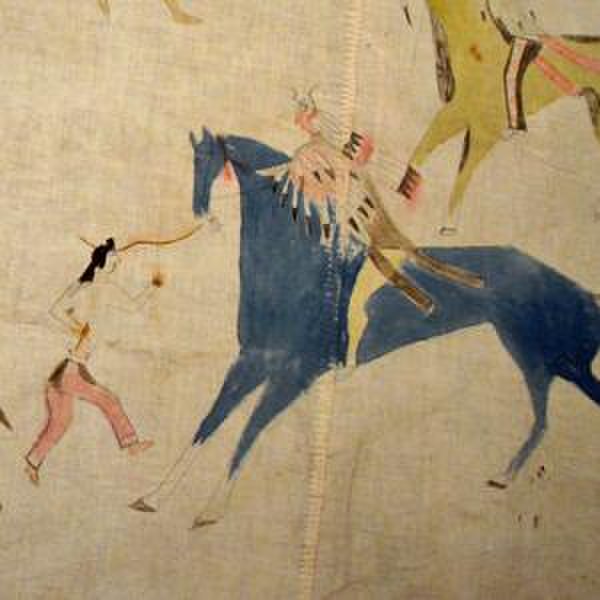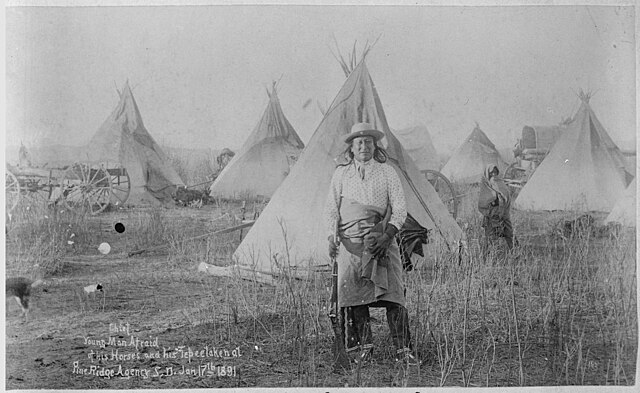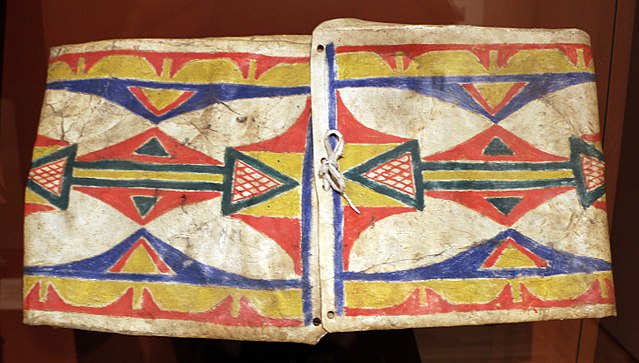William Selby Harney, otherwise known among the Lakota people as "Woman Killer" and "Mad Bear," was a Tennessee-born cavalry officer in the US Army, who became known during the Indian Wars and the Mexican–American War for his brutality and ruthlessness. One of four general officers in the US Army at the beginning of the American Civil War, he was removed from overseeing the Department of the West because of his Southern sympathies early in the war, although he kept Missouri from joining the Confederacy. Under President Andrew Johnson, he served on the Indian Peace Commission, negotiating several treaties before spending his retirement partly in St. Louis and partly trading reminiscences with Jefferson Davis and Ulysses S. Grant in Mississippi.
Bvt. Maj. Gen. William S. Harney
The Lakota are a Native American people. Also known as the Teton Sioux, they are one of the three prominent subcultures of the Sioux people, with the Eastern Dakota (Santee) and Western Dakota (Wičhíyena). Their current lands are in North and South Dakota. They speak Lakȟótiyapi—the Lakota language, the westernmost of three closely related languages that belong to the Siouan language family.
Sitting Bull, a Hunkpapa Lakota chief and holy man, c. 1831 – December 15, 1890
Scenes of battle and horse raiding decorate a muslin Lakota tipi from the late 19th or early 20th century
January 17, 1891: Young Man Afraid of His Horses at camp of Oglala band of Lakota at Pine Ridge, South Dakota, 3 weeks after the Wounded Knee Massacre, when 153 Lakota Sioux and 25 U.S. soldiers died
Lakota parfleche, c. 1890, Speed Art Museum





